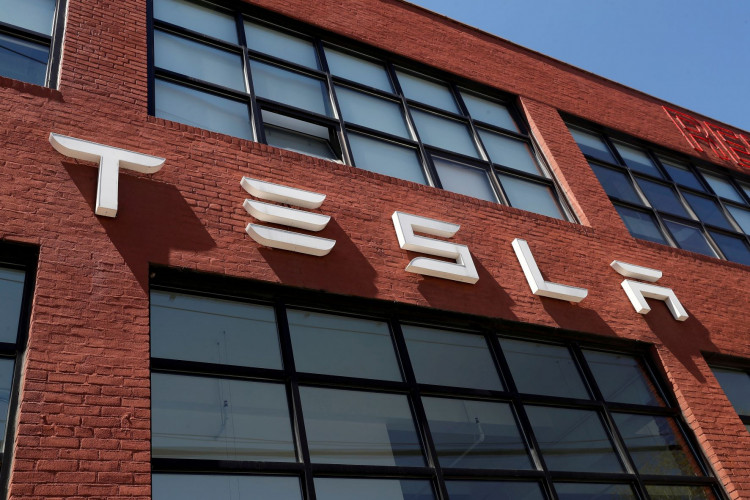Tesla's stock price surged following Morgan Stanley's bullish stance on the potential of Tesla's supercomputer, Dojo, to amplify the benefits of artificial intelligence (AI).
On Monday, September 11, after three consecutive days of decline, Tesla's stock made a robust comeback. It opened with a jump of over 6.3%, reaching close to $274.90 by midday, marking an intraday increase of 10.6%. By the close, the stock was up 10.09%, settling at $273.58, its highest since July 19. This surge added more than $70 billion to Tesla's market capitalization in a single day.
On the same day, tech stocks, led by Tesla, rallied, bolstering the broader market. The NASDAQ rose over 1%, the S&P 500 climbed nearly 0.7%, and the Dow Jones Industrial Average increased by almost 90 points.
Outside of Tesla, other leading tech stocks mostly rose. By the close, Amazon and Meta were up over 3%, Microsoft rose over 1%, while Apple, Google, and Netflix saw increases of less than 1%. The Philadelphia Semiconductor Index, which had dropped over 1% in early trading, ended with a slight gain of less than 0.1%. Qualcomm rose 3.9%, Intel was up over 1%, but Nvidia fell nearly 0.9%, marking its fourth consecutive day of decline.
60% Price Target Hike: Morgan Stanley Compares Dojo to Amazon's AWS, Foresees Accelerated Autonomous Driving Development
The catalyst for Tesla's stock surge on Monday was a report released by Adam Jonas and other analysts at Morgan Stanley titled "Unlocking Tesla's AI Magic."
In the report, the analysts upgraded Tesla's stock rating from "hold" to "overweight" and dramatically increased their 12-month price target from $250 to $400, a 60% hike. This suggests that the Dojo supercomputer will accelerate the deployment of robot taxis and web services, potentially adding as much as $500 billion to Tesla's market valuation.
The report drew parallels between Tesla's Dojo and Amazon's AWS, which has been a significant growth engine for Amazon. The analysts stated that the biggest value drivers for Tesla are software and service revenues. They believe that the same forces that propelled AWS to account for 70% of Amazon's EBIT could also play out for Tesla, opening up new potential markets far beyond selling cars at fixed prices.
The report highlighted the potential of Dojo, which Tesla has been working on for the past five years, to train vast amounts of data for its driving system. This could give Tesla an "asymmetric advantage" in a market potentially worth $10 trillion.
Specifically, Dojo is expected to help Tesla improve its Full Self-Driving (FSD) technology, as the tech requires immense computational power, making supercomputers like Dojo ideal. Enhanced FSD products should lead to higher profits and revenues for Tesla, especially as customers opt to add the accompanying FSD software feature when purchasing a Tesla vehicle.
The report estimated that by increasing computational power with its in-house supercomputer, Dojo could save Tesla up to $6.5 billion in costs over the next few years. The key is that Dojo can accelerate the development of autonomous driving capabilities.
Tesla claims that Dojo can reduce the time required for training workloads from over a month to less than a week. The report believes that the potential efficiency, speed, and cost advantages could allow Tesla to significantly shorten the time to develop autonomous driving.
Furthermore, Dojo could also assist Tesla in developing humanoid robots and have broader implications for various scientific projects Elon Musk is undertaking. This is what makes Tesla's ownership of Dojo so special for investors.
Seth Goldstein, a stock strategist at Morningstar Research Services, predicted on Monday that if Dojo is launched, operational, and takes over software training, it will enable Tesla to update software faster and increase software profit subscriptions, potentially becoming a significant value driver.





